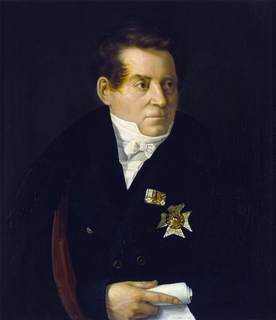A Quote by Wilhelm Wundt
Psychology, on the other hand, seeks to give account of the interconnexion of processes which are evinced by our own consciousness, or which we infer from such manifestations of the bodily life in other creatures as indicate the presence of a consciousness similar to our own.
Related Quotes
At the deepest level, an 'open heart' is spacious presence, in which the sense of separateness between yourself and the 'other' dissolves and there is the recognition of oneness, of shared consciousness. That recognition is love. Sensing the formless essence in another and recognizing it as one with your own essence - that's what love is. All this is an intrinsic part of the awakened consciousness and the revelation of the spiritual dimension of life.
We live in a society that will send us to prison if we make use of time-honored sacred plants to explore our own consciousness. Yet surely the exploration and expansion of the miracle of our consciousness is the essence of what it is to be human? By demonstrating and persecuting whole areas of consciousness, we may be denying ourselves the next vital step in our own evolution.
I believe consciousness is non-local and a big part of what we experience with near death and past lives. It's the consciousness that has come into us from other experiences and our consciousness that we remain aware of when we leave our bodies and they communicate with us through dreams, and even through drawings which I do a lot of work with myself.
Does the open wound in another's breast soften the pain of the gaping wound in our own? Or does the blood which is welling from another man's side staunch that which is pouring from our own? Does the general anguish of our fellow creatures lessen our own private and particular anguish? No, no, each suffers on his own account, each struggles with his own grief, each sheds his own tears.
There can be no more intimate and elemental part of the individual than his or her own consciousness. At the deepest level, our consciousness is what we are - to the extent that if we are not sovereign over our own consciousness then we cannot in any meaningful sense be sovereign over anything else either.
I consider morals and aesthetics one and the same, for they cover only one impulse, one drive inherent in our consciousness - to bring our life and all our actions into a satisfactory relationship with the events of the world as our consciousness wants it to be, in harmony with our life and according to the laws of consciousness itself.
All thought of something is at the same time self-consciousness [...] At the root of all our experiences and all our reflections, we find [...] a being which immediately recognises itself, [...] and which knows its own existence, not by observation and as a given fact, nor by inference from any idea of itself, but through direct contact with that existence. Self-consciousness is the very being of mind in action.
This world, this universe which our senses feel, or our mind thinks, is but one atom, so to say, of the Infinite, projected on to the plane of consciousness; and within that narrow limit, defined by the network of consciousness, works our reason, and not beyond. Therefore, there must be some other instrument to take us beyond, and that instrument is called inspiration.
In the field of consciousness research-and also in physics and astronomy-we are breaking past the cause-and-effect, mechanistic way of interpreting things. In the biological sciences, there is a vitalism coming in that goes much further toward positing a common universal consciousness of which our brain is simply an organ. Consciousness does not come from the brain. The brain is an organ of consciousness. It focuses consciousness and pulls it in and directs it through a time and space field. But the antecedent of that is the universal consciousness of which we are all just a part.



































